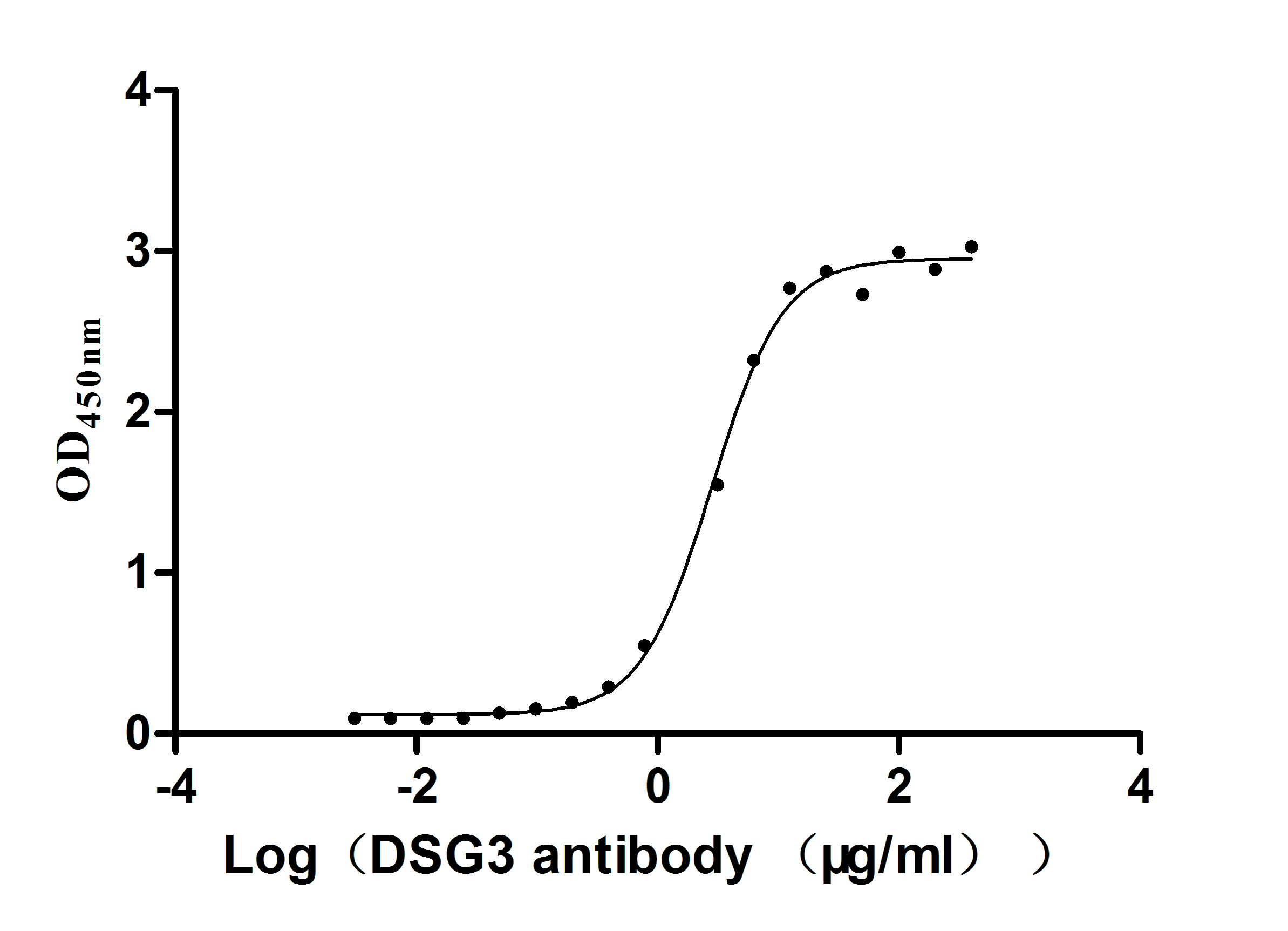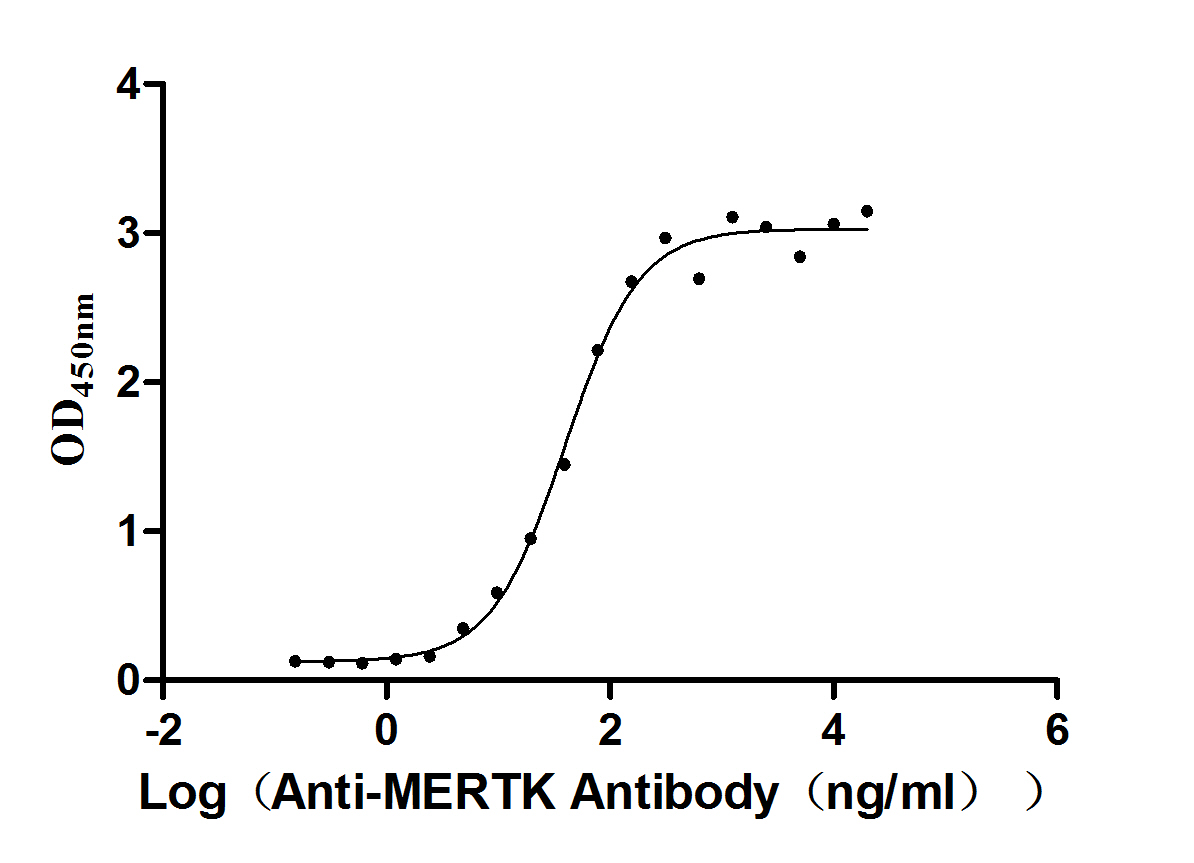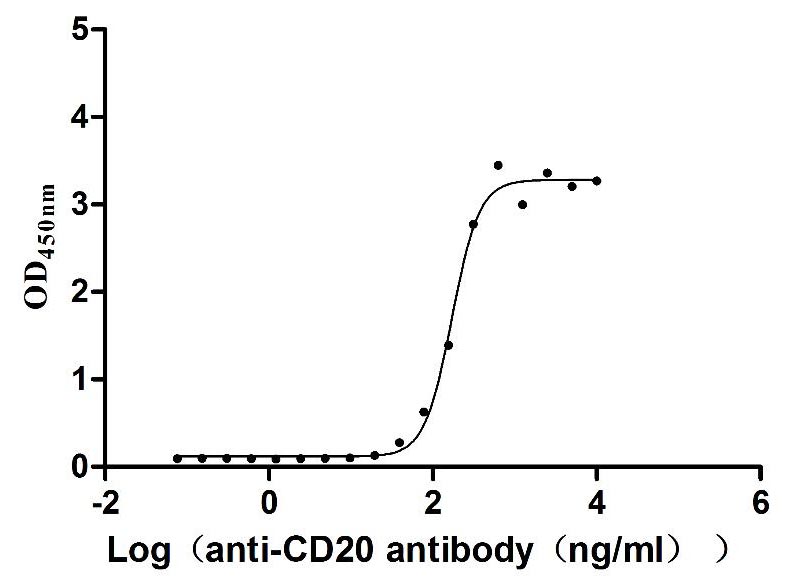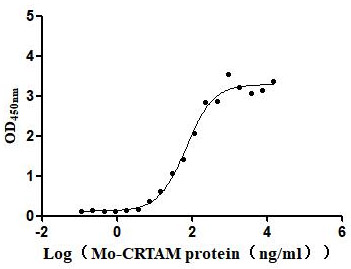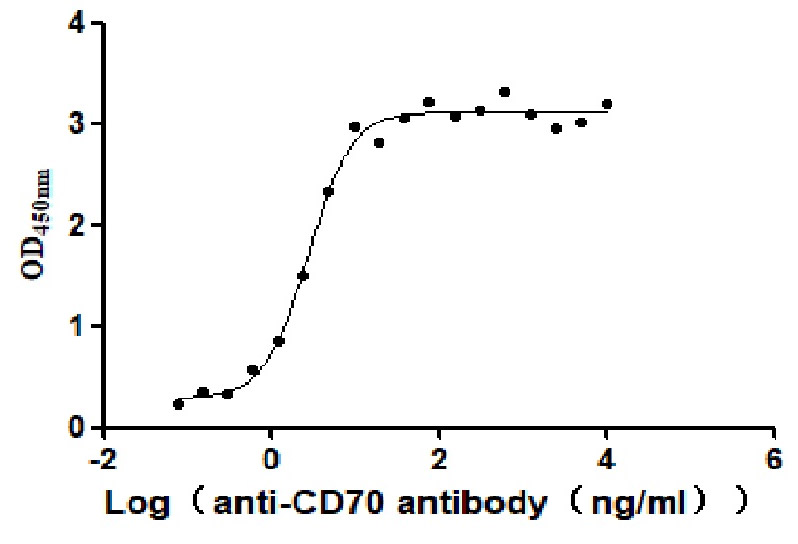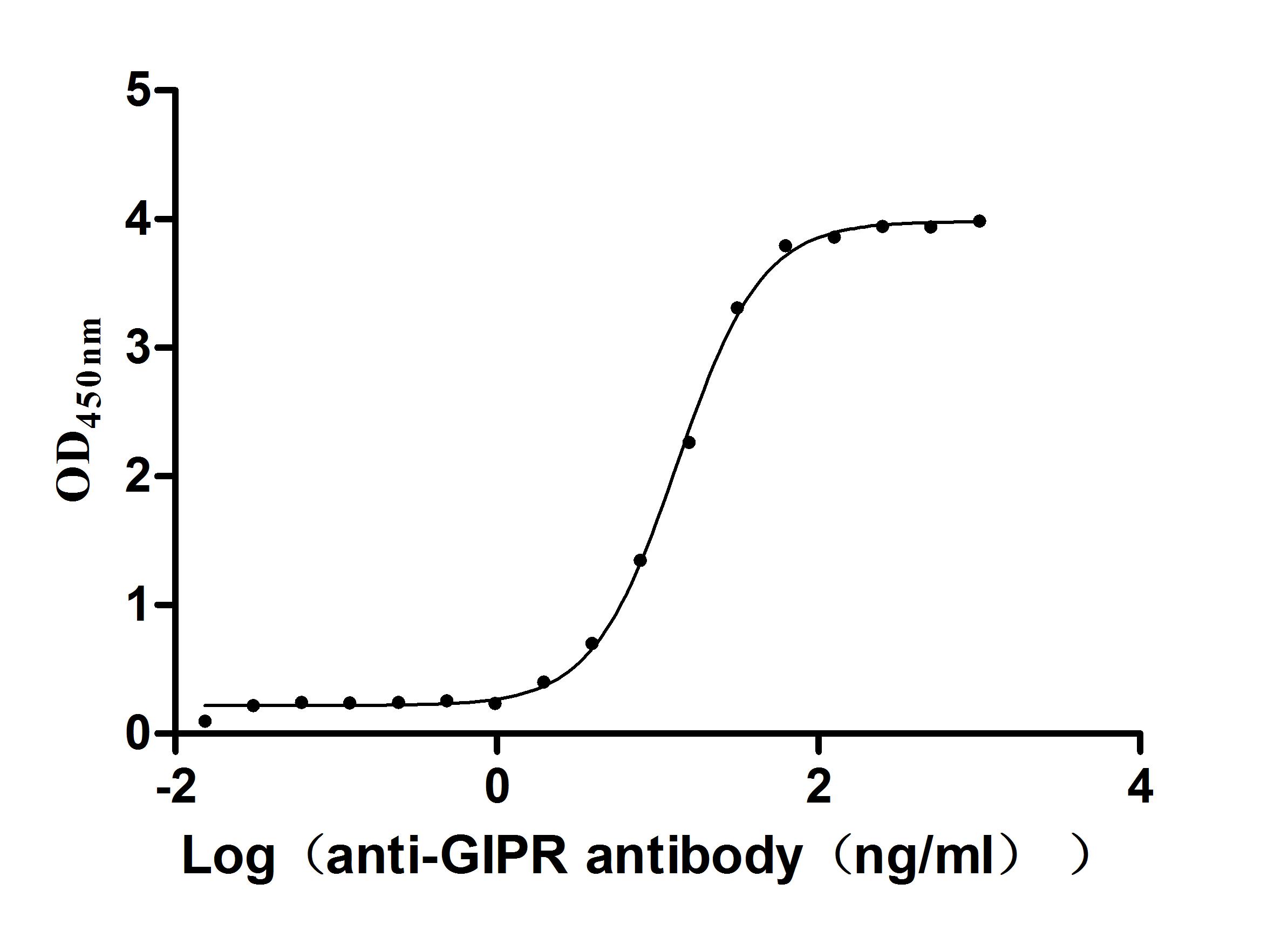Recombinant Saccharomyces cerevisiae DNA polymerase delta catalytic subunit (POL3), partial
-
中文名称:酿酒酵母POL3重组蛋白
-
货号:CSB-YP018303SVG
-
规格:
-
来源:Yeast
-
其他:
-
中文名称:酿酒酵母POL3重组蛋白
-
货号:CSB-EP018303SVG
-
规格:
-
来源:E.coli
-
其他:
-
中文名称:酿酒酵母POL3重组蛋白
-
货号:CSB-EP018303SVG-B
-
规格:
-
来源:E.coli
-
共轭:Avi-tag Biotinylated
E. coli biotin ligase (BirA) is highly specific in covalently attaching biotin to the 15 amino acid AviTag peptide. This recombinant protein was biotinylated in vivo by AviTag-BirA technology, which method is BriA catalyzes amide linkage between the biotin and the specific lysine of the AviTag.
-
其他:
-
中文名称:酿酒酵母POL3重组蛋白
-
货号:CSB-BP018303SVG
-
规格:
-
来源:Baculovirus
-
其他:
-
中文名称:酿酒酵母POL3重组蛋白
-
货号:CSB-MP018303SVG
-
规格:
-
来源:Mammalian cell
-
其他:
产品详情
-
纯度:>85% (SDS-PAGE)
-
基因名:POL3
-
Uniprot No.:
-
别名:POL3; CDC2; TEX1; YDL102W; D2366DNA polymerase delta catalytic subunit; EC 2.7.7.7; 3'-5' exodeoxyribonuclease; EC 3.1.11.-; DNA polymerase III
-
种属:Saccharomyces cerevisiae (strain ATCC 204508 / S288c) (Baker's yeast)
-
蛋白长度:Partial
-
蛋白标签:Tag type will be determined during the manufacturing process.
The tag type will be determined during production process. If you have specified tag type, please tell us and we will develop the specified tag preferentially. -
产品提供形式:Lyophilized powder
Note: We will preferentially ship the format that we have in stock, however, if you have any special requirement for the format, please remark your requirement when placing the order, we will prepare according to your demand. -
复溶:We recommend that this vial be briefly centrifuged prior to opening to bring the contents to the bottom. Please reconstitute protein in deionized sterile water to a concentration of 0.1-1.0 mg/mL.We recommend to add 5-50% of glycerol (final concentration) and aliquot for long-term storage at -20℃/-80℃. Our default final concentration of glycerol is 50%. Customers could use it as reference.
-
储存条件:Store at -20°C/-80°C upon receipt, aliquoting is necessary for mutiple use. Avoid repeated freeze-thaw cycles.
-
保质期:The shelf life is related to many factors, storage state, buffer ingredients, storage temperature and the stability of the protein itself.
Generally, the shelf life of liquid form is 6 months at -20°C/-80°C. The shelf life of lyophilized form is 12 months at -20°C/-80°C. -
货期:Delivery time may differ from different purchasing way or location, please kindly consult your local distributors for specific delivery time.Note: All of our proteins are default shipped with normal blue ice packs, if you request to ship with dry ice, please communicate with us in advance and extra fees will be charged.
-
注意事项:Repeated freezing and thawing is not recommended. Store working aliquots at 4°C for up to one week.
-
Datasheet :Please contact us to get it.
靶点详情
-
功能:Catalytic component of DNA polymerase delta (DNA polymerase III) which participates in chromosomal DNA replication. Required during synthesis of the lagging DNA strands at the replication fork, binds at/or near replication origins and moves along DNA with the replication fork. Participates in leading strand synthesis during replication initiation and termination. Has 3'-5' proofreading exonuclease activity that corrects errors arising during DNA replication.
-
基因功能参考文献:
- to the synthesis of both nascent strands immediately at origins, likely by initiating leading-strand replication PMID: 29487291
- Induced and spontaneous mutagenesis in pol3-13 mutant yeast strains and its dependence on theREV3 gene, encoding the catalytic subunit of pol delta were studied. The defect in coordination of the Fe-S cluster in pol delta conferred by the pol3-13 mutation abolishes UV-mutagenesis, but found that it elevates the incidence of spontaneous Rev3-dependent base-substitution mutations and deletions. PMID: 28034630
- The effect of mutations in beta hairpin structure in POL3 on its proofreading DNA polymerase 3'-->5' exonuclease activity is studied. PMID: 25753811
- Study finds that wild-type Pol epsilon molecules cannot proofread errors created by proofreading-defective Pol epsilon molecules, whereas Pol delta can not only proofread errors created by proofreading-defective Pol delta molecules, but can also proofread errors created by Pol epsilon-defective molecules. PMID: 25742645
- genetic studies with Pol3 and Pol2 mutator alleles support the conclusion that Poldelta, and not Polepsilon, is the major DNA polymerase for carrying out both leading and lagging DNA synthesis PMID: 26145172
- Poldelta-R696W promotes its own infidelity by expansion of dNTP pools PMID: 25827231
- Data suggest that DNA-directed DNA polymerase Pols alpha and delta are the primary lagging-strand replicases and Pol epsilon is primarily a leading-strand replicase. PMID: 25217194
- TLS polymerase REV1 carries out DNA lesion bypass only after the Def1-assisted removal of Pol3 from the stalled replication fork. PMID: 24465179
- the initial steps of break-induced replication occur normally in Pif1-deficient cells, but Poldelta recruitment and DNA synthesis are decreased, resulting in premature resolution of DNA intermediates into half-crossovers PMID: 24025768
- A substitution in the fingers domain of DNA polymerase delta reduces fidelity by altering nucleotide discrimination in the catalytic site PMID: 23283971
- Data suggest the existence of a small number of additional sites in the yeast genome that interact with Pol III transcription complexes. PMID: 22287102
- Loss of the last four amino acids at the C-terminal end of Pol3 impairs the interaction with Pol31. Pol delta stability is impaired in the pol3-ct mutant. PMID: 20813592
- the 3'-->5' exonuclease of Saccharomyces cerevisiae DNA polymerase delta has three biological functions that require switching between the polymerase and exonuclease domains PMID: 15601866
- These results argue strongly for the preferential recruitment of Poldelta during homologous recombination. PMID: 18086882
- exchange of Saccharomyces cerevisiae Poldelta with Poleta requires both the stalling of the holoenzyme and the monoubiquitination of proliferating cell nuclear antigen PMID: 18385374
- These data support a model of the replication fork wherein the leading and lagging strand templates are primarily copied by Pol epsilon and Pol delta, respectively. PMID: 18439893
- Reduced levels of Pol3p, the catalytic subunit of DNA polymerase delta, induce instability at these same sites and lead to the generation of a variety of chromosomal aberrations. PMID: 18591249
- our genetic evidence supports a novel role of Pol3 in nonhomologous end joining that facilitates gap filling at 3' overhangs in the absence of Pol4 to maintain genomic integrity. PMID: 18606574
- DNA polymerase delta is highly processive with proliferating cell nuclear antigen and undergoes collision release upon completing DNA PMID: 18635534
- lack of coordination between DNA polymerase delta and Rad27/Fen1 with the PCNA sliding clamp during long-patch base excision repair of alkylation damage can result in many double-strand breaks within the chromosomes of nondividing haploid cells PMID: 19075004
- the BIR defect observed for rad51 mutants is due to strand invasion failure, whereas the Pol delta complex mutants are proficient for strand invasion but unable to complete extensive tracts of recombination-initiated DNA synthesis. PMID: 19139272
- Study concludes that hmo1Delta suppression of the DNA pol delta mutation, pol3-14, occurs by a mechanism whereby normal controls on DNA integrity are breached and lesions flow into RAD52-mediated repair and error-prone pathways. PMID: 19184026
- Crystal structure Pol delta in ternary complex with a template primer and incoming nucleotide catches the enzyme in the act of replication; polymerase and exonuclease domains are juxtaposed relative to each other & nucleotide is selected & incorporated. PMID: 19718023
- propose an orientation for the accessory Pol31-Pol32N subunits relative to the Pol3 catalytic core that best agrees with the experimental scattering profile PMID: 19818796
- The POL3 allele, pol3-t, of Saccharomyces cerevisiae, hyperrecombination phenotype and DNA damage-induced recombination is RAD50 dependent. PMID: 19834566
- PCNA has a specific role in the initiation of recombination-associated DNA synthesis and that DNA polymerase delta promotes recombination-associated DNA synthesis. PMID: 19941829
显示更多
收起更多
-
亚细胞定位:Nucleus.
-
蛋白家族:DNA polymerase type-B family
-
数据库链接:
KEGG: sce:YDL102W
STRING: 4932.YDL102W
Most popular with customers
-
Recombinant Human Hepatocyte growth factor receptor (MET), partial (Active)
Express system: Mammalian cell
Species: Homo sapiens (Human)
-
Recombinant Mouse Desmoglein-3 (Dsg3), partial (Active)
Express system: Mammalian cell
Species: Mus musculus (Mouse)
-
Recombinant Human Tyrosine-protein kinase Mer (MERTK), partial (Active)
Express system: Mammalian cell
Species: Homo sapiens (Human)
-
Recombinant Dog B-lymphocyte antigen CD20 (MS4A1)-VLPs (Active)
Express system: Mammalian cell
Species: Canis lupus familiaris (Dog) (Canis familiaris)
-
Recombinant Mouse Cell adhesion molecule 1 (Cadm1), partial (Active)
Express system: Mammalian cell
Species: Mus musculus (Mouse)
-
Recombinant Human CD70 antigen (CD70), partial (Active)
Express system: Mammalian cell
Species: Homo sapiens (Human)
-
Recombinant Macaca fascicularis Gastric inhibitory polypeptide receptor (GIPR), partial (Active)
Express system: yeast
Species: Macaca fascicularis (Crab-eating macaque) (Cynomolgus monkey)
-
Recombinant Human Cadherin-6(CDH6),partial (Active)
Express system: Mammalian cell
Species: Homo sapiens (Human)



